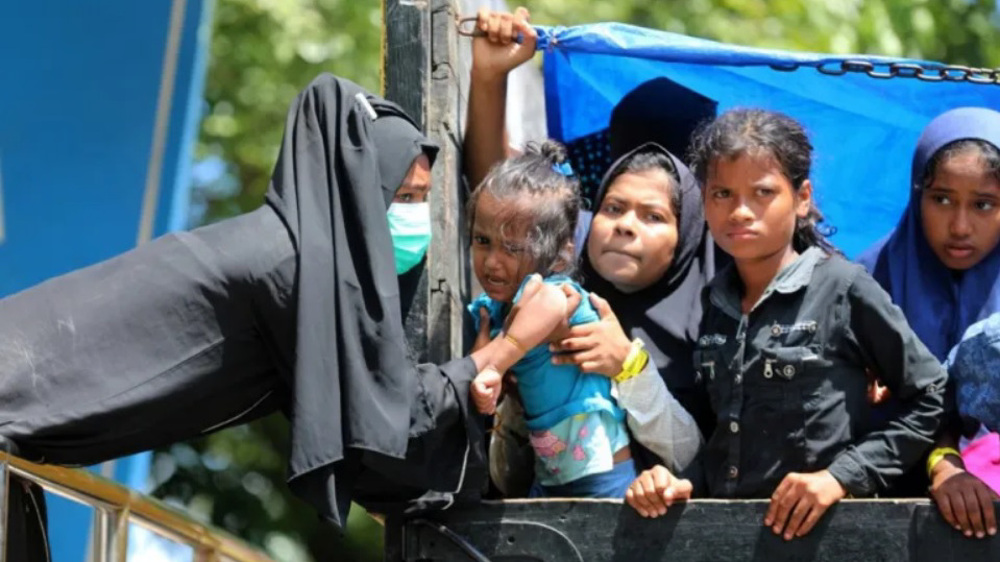Armenia's parliament elects Nikol Pashinyan prime minister
Armenia's opposition leader Nikol Pashinyan has won the parliament's backing to take over as the country's prime minister, ending weeks of mass protests against corruption in the ex-Soviet republic.
In a vote in the parliament on Tuesday, 59 lawmakers voted for Pashinyan's candidacy and 42 voted against. Some parliamentarians from the ruling Republican Party also cast their votes in his favor.
Last week, the ruling party blocked Pashinyan in a vote, but it said on Tuesday it had decided to get behind him for the sake of unity and the good of the nation.
Before the vote, Pashinyan addressed the parliament, calling on Armenia's people to come together behind the new government he will lead.
"The page of hatred should be turned," he said, adding, "May God help us."
"All people are equal before the law. There will be no people enjoying privileges in Armenia. That's it. Full stop."
Pashinyan's supporters gathered at Republic Square in the capital Yerevan to watch the voting on huge television screens. Thousands of people erupted into joy when the result was shown and white doves were released into the air.
"We won! We made history today!" said a 22-year-old student in the crowd.
The election of Pashinyan, a former newspaper editor, ruptures the cadre of rulers who have run Armenia since the late 1990s.
Pashinyan's protest movement was sparked when Serzh Sargsyan, barred by the constitution from seeking another term as president, became prime minister instead.

Pashinyan spearheaded the movement that first forced veteran leader to step down as premier and then pressured the ruling party to abandon attempts to block his election as prime minister.
Sargsyan has faced similar protests in the past. Some 10 people died and hundreds were injured in clashes that erupted after he was elected president in 2008.
Sargsyan had a relatively difficult time ruling Armenia over the past 10 years due to economic hardships hampering his government’s efforts to improve welfare for Armenia’s 2.9 million people as well as renewed military clashes with Azerbaijan, an ally of the West in the South Caucasus, over the thorny issue of Karabakh.
Russia has not intervened in the recent political events. Moscow is wary of an uncontrolled change of power, but Pashinyan has offered assurances that he will not break with the Kremlin.
Armenia is dependent on Russia for its security and has a Russian military base on its territory.
US-funded hepatitis B study in West Africa sparks ethical concerns
Chinese, South African naval commanders visit Iranian task group in Cape Town
Iran condemns G7 hypocrisy on human rights following interventionist statement
VIDEO | US, Israel role in terror attacks in Iran
VIDEO | Death behind bars: Gaza’s prisoners. silence surrounding them
60,000 weapons bound for Tehran seized as Mossad-trained terror cell busted
VIDEO | 13th day of war
Israeli strikes kill two in Lebanon as UNIFIL warns against ceasefire violations










 This makes it easy to access the Press TV website
This makes it easy to access the Press TV website